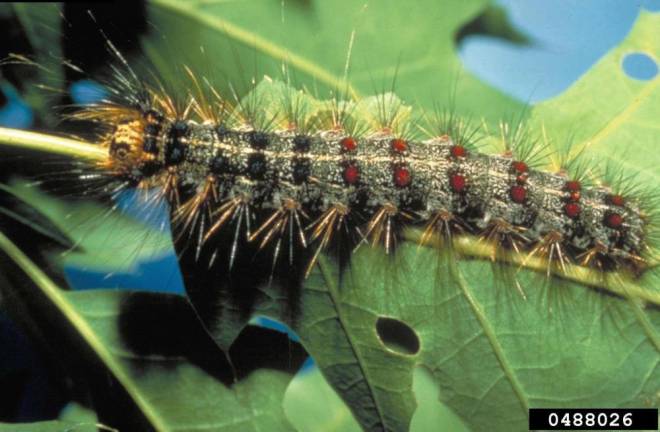Pike County wins grant to fight spongy moth infestation
Milford. Commissioner Caceres said the grant is intended to help offer a cost-share program for landowners seeking aerial solutions.

Pike County has won a $400,000 grant to help address its severe spongy moth infestation. The grant award was announced in a joint statement by Rep. Jeff Olsommer and Sen. Lisa Baker. The two lawmakers worked with county officials to obtain the funding through the Department of Community and Economic Development (DCED).
The spongy moth, formerly known as the gypsy moth, has caused significant tree mortality and defoliation statewide. Pike County reported a high presence of spongy moth this year, with mapping by the Department of Conservation and Natural Resources (DCNR) suggesting the threat posed by the moth locally “will continue for several more years.”
“This is a major issue for Pike County and its residents, businesses and developments,” said Olsommer. “At the urging of the Pike County commissioners, and in collaboration with Sen. Baker, I am thrilled to be able to offer the county some relief. I worked very hard alongside the senator to secure this funding to help our constituents.”
“Ever since Gov. Gifford Pinchot helped to establish the United States Forest Service, Pike County has been dedicated to the sustainable management of its abundant natural resources. This history of stewardship has made the area a preferred recreation and ecotourism destination. Combating this destructive pest will ensure forest health and continued enjoyment of this pristine natural environment,” Baker said.
“With the level of defoliation experienced this past year, the county is grateful to be awarded funding through the DCED Economic Development Initiatives Program,” said Christa Caceres, Pike County commissioner and Spongy Moth Task Force co-chair. “The grant is intended to help offer a cost-share program for landowners seeking aerial application to suppress the spongy moth.”
The joint announcement noted that although DCNR does treat portions of state lands for spongy moths, there is currently no state cost-share or local residential spraying program available for landowners, leaving them to tackle spongy moth outbreaks on their own.